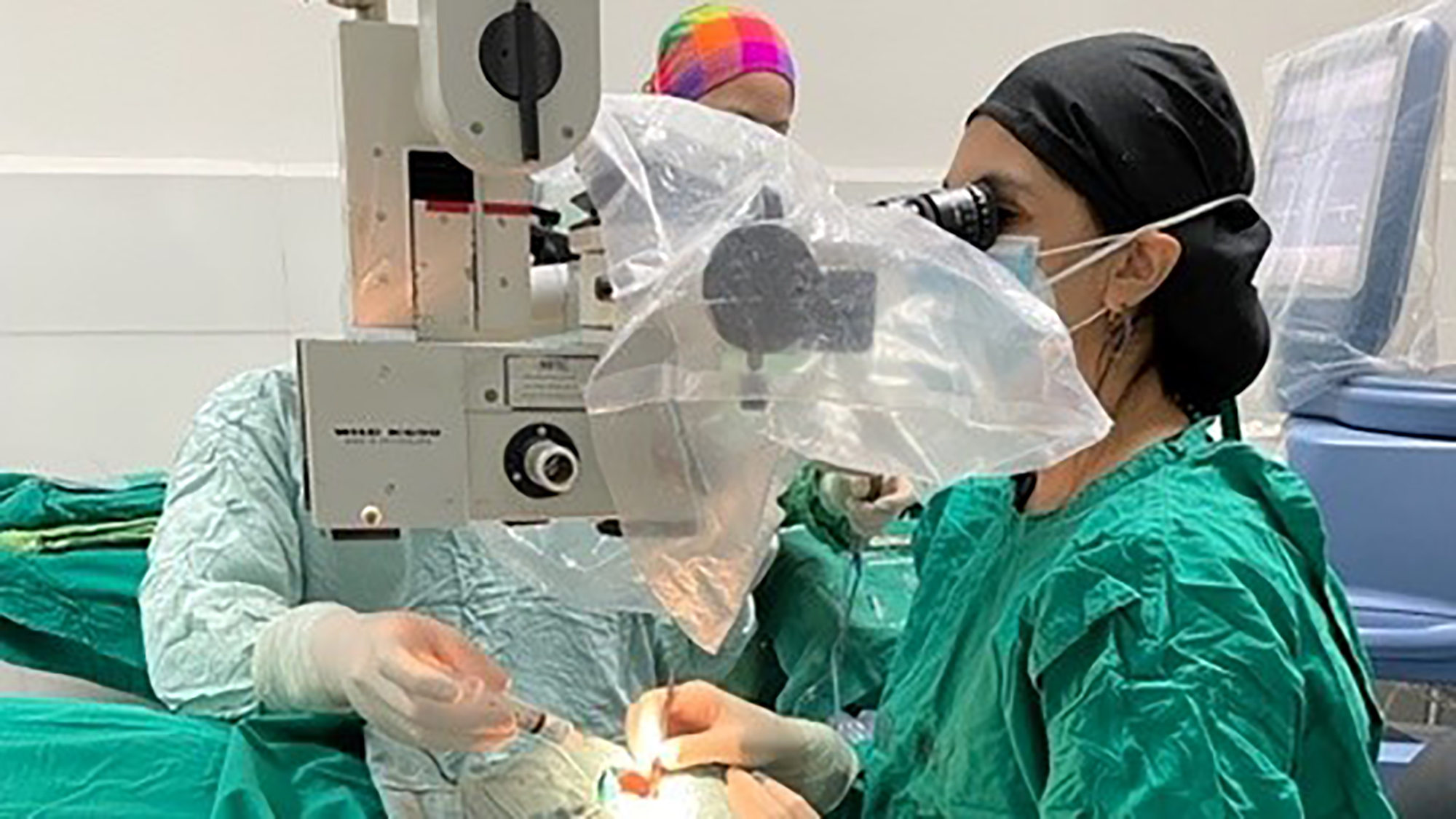The Challenge
There are minimal ophthalmologic training opportunities in Honduras. The sole training facility for aspiring ophthalmologists is the San Felipe Hospital in Tegucigalpa, which has six residents, two fellows, and four attendings. The most effective way to meet the vision health needs of the Honduran population is through training local medical students and doctors who are dedicated to serving their population.
It is common for post-operative patients in Honduras to not see their surgeons after cataract surgery. To the extent that physicians do not routinely give detailed follow-up instructions to these same patients, the recovery of those patients is likely to be thwarted. There is a pronounced need for residents, fellows and doctors in Honduras to be trained in the development of post-operative treatment plans. This training becomes even more critical given the likelihood that any given surgery may be performed by a visiting doctor from another country. Once those physicians return to their home countries, the likelihood of the patients obtaining after-care becomes negligible.
And finally, there is a need to better train residents and doctors on techniques for quickly triaging ophthalmology patients to determine which among them will best benefit from surgery.
The Response
Our abiding and overarching goal is to work with our partners to fill mutually identified gaps in patient care and physician training. Working with the Advanced Center for Eye Care (ACE) Global Program and the Universdad Nacional Autonoma de Honduras, the Emory GO-E program has established a partnership for education, research and clinical skill enhancement for ophthalmology residents of Honduras.
This partnership has allowed the GO-E program to support the anterior segment fellowship, a training program that enhances the surgical skills of our ophthalmology colleagues in Honduras by providing site training, lectures, and observerships at Emory.
Based on our direct observations and consultations in Honduras in 2023, we've identified new subject areas for the fellowship. First, we see the opportunity to train physicians in the development of post-operative patient plans. Our collaboration has also identified the need to bolster the surgical assessment portion of our fellowship training so as to increase our Honduran colleagues' ability to accurately identify candidates for cataract surgery.
The Future
The GO-E program expects to build a bi-directional partnership between Honduran trainees and Emory faculty that will build ophthalmic capacity in Honduras by increasing the number of highly skilled graduates from the Honduran ophthalmology program. Based on continual improvements in our fellowship curriculum, we also anticipate a larger cohort of well-trained ophthalmic subspecialists. In the fall of 2023, we anticipate sending our fist-ever oculoplastic faculty to establish a fellowship in that area.


